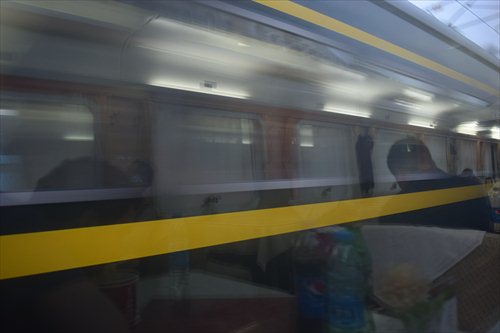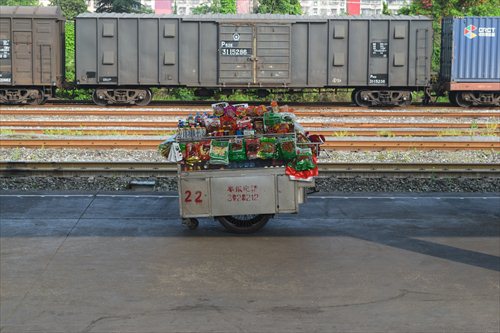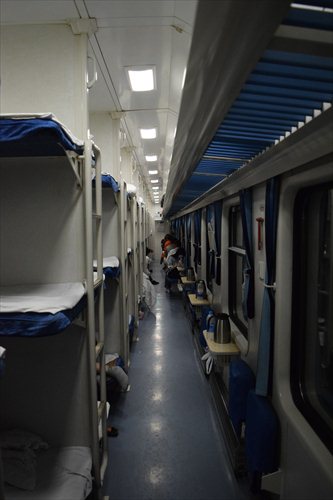Riding the rails
Notes from a laowai’s last leisurely train ride in China
Recently I embarked on a 4,500-kilometer journey from Shanghai to Sichuan Province. The official reason was to visit a silk embroidery atelier at Chongqing, but really it was to bring to life a long-postponed dream.
I always wanted to travel deep into China along the Silk Road, riding the traditional trains - and I felt like this was my last chance. Next year I will move to Singapore, and with that might go my opportunity to spend such a long time in China again.


The 85-hour journey couldn't be squeezed into future touristic or business visits - hence, this was my last shot. So I caught a train to Chengdu, a 40-hour ride. We then moved on to Chongqing and arrived back in Shanghai with another 40 hours on the rails from there.
The beginning of the journey started in a holding pattern, waiting for the printed, physical ticket that was already reserved and purchased. In Europe you can usually just show the electronic receipt or QR code; Germany's system seems ideal using an app to store all such info.
At the counter in Shanghai station, the signs, timetables and service are completely in Chinese. For a non-reader, it is unclear where to queue, and you can waste time waiting for a counter that won't serve you. It's chaotic for someone with little Chinese-language knowledge, and probably near-impossible for someone lacking any Chinese.
Upon boarding I saw several shifu dressed in classic, Communist-looking uniforms, with hats adorned by a red star. They give a nostalgic look, and I felt like I was taking a train from the 1960s.
The compartments lack doors, so the whole car is connected in terms of sounds and smell. There's no privacy, but people mind their own business anyway, and the ride seemed routine for most passengers.

It's nice seeing the different people boarding and disembarking throughout the ride. I couldn't decipher specifics by accent or dialect, but I could spot the differences every few stops.
For my first time in China, I saw slums, like the ones you'd see in Bollywood films and on the outskirts of Manila. Among the developing areas of Hubei Province, I observed simple lifestyles waiting to be swallowed by modernization - current livelihoods that likely stood to be torn away and fit into apartment complexes.
From my window, a lot of people seemed to make a living in front of their houses, selling street food or simple household items. I can't help but think how this would be possible from the 18th floor of a high-rise.

(From top) Scenes from the train between Shanghai and Sichuan Province Photos: Onat Kibaroglu
The meal service was in carriage No.11, and our beds were in No.3. I made that trek several times, and I got fewer stares than I imagined.
Only a couple kids called me waiguoren (foreigner) - nothing more than on a usual stroll through Luijiazui or on the Bund. Even though we were the only foreigners out of some 600 passengers, I did not feel at all unwelcome.
Socioeconomically, the passenger demographic was apparent. It reminded me of the disparity in Londoners' dress between the bus and the train. One served people with higher disposable income, the other for those who might only be getting by.
There the price difference was fivefold to tenfold; here, our train was three times cheaper than the high-speed line. And you could smoke on this train, but not the other.
China does feel bigger after this journey. I struggled to keep up with what province we were in, which is geographically comparable to being confused about being in Germany or Italy.
There isn't much difference between the provinces; rather, the apparent difference is between rural areas and urban. You pass through the 19th century and the 21st within five minutes.
Speaking of minutes, the precise arrival at each stop was quite amazing. It's a slow train that travels well over 2,200 kilometers, but it stays on schedule with only a few minutes' difference.
Having now spent quite some time on trains in both China and Europe, I can now clearly say that the experience is drastically different.
Trains are part of Chinese national culture, and a must-do experience for anyone wanting to bring home a special memory beyond the Bund or the Great Wall.